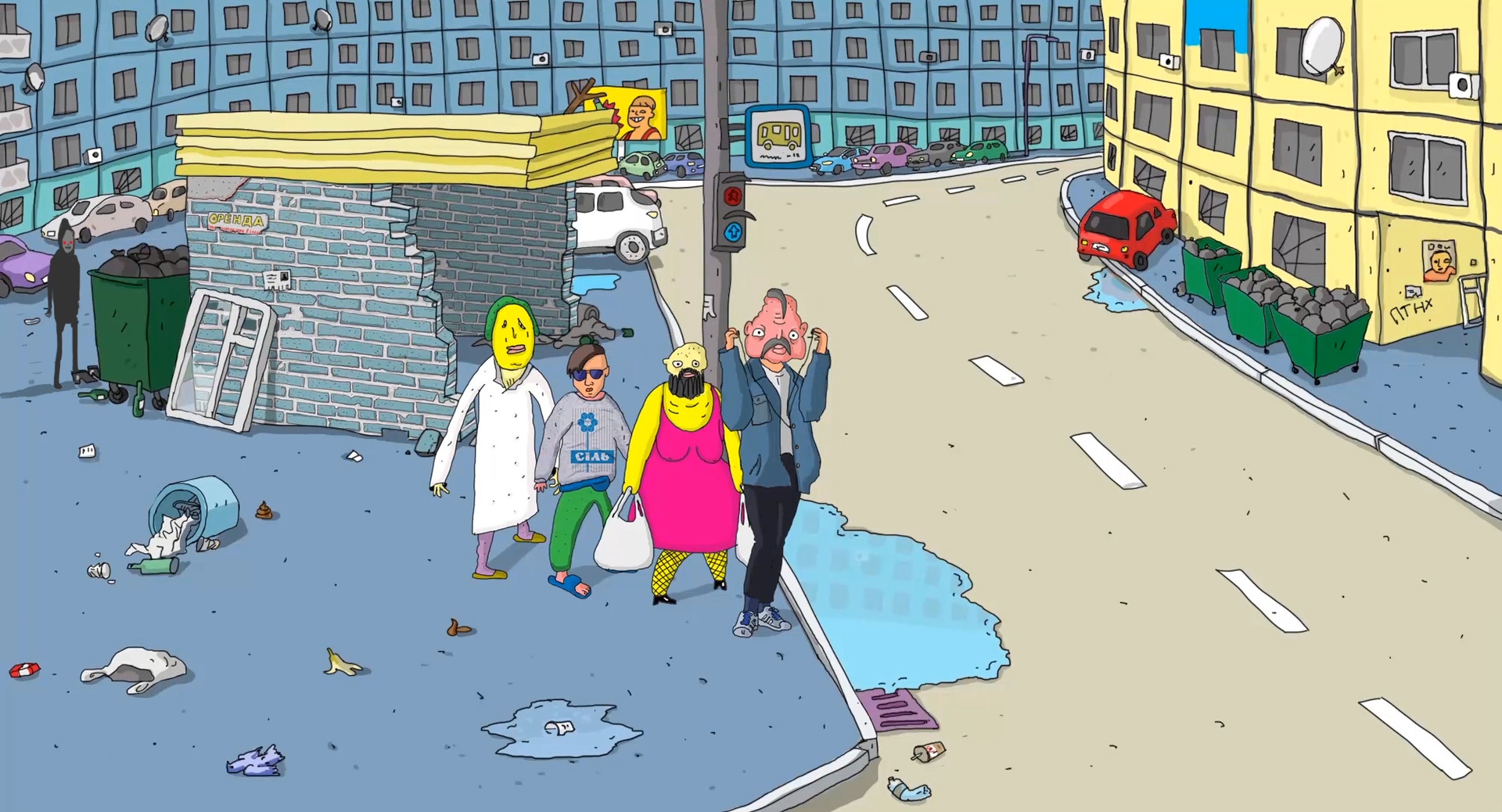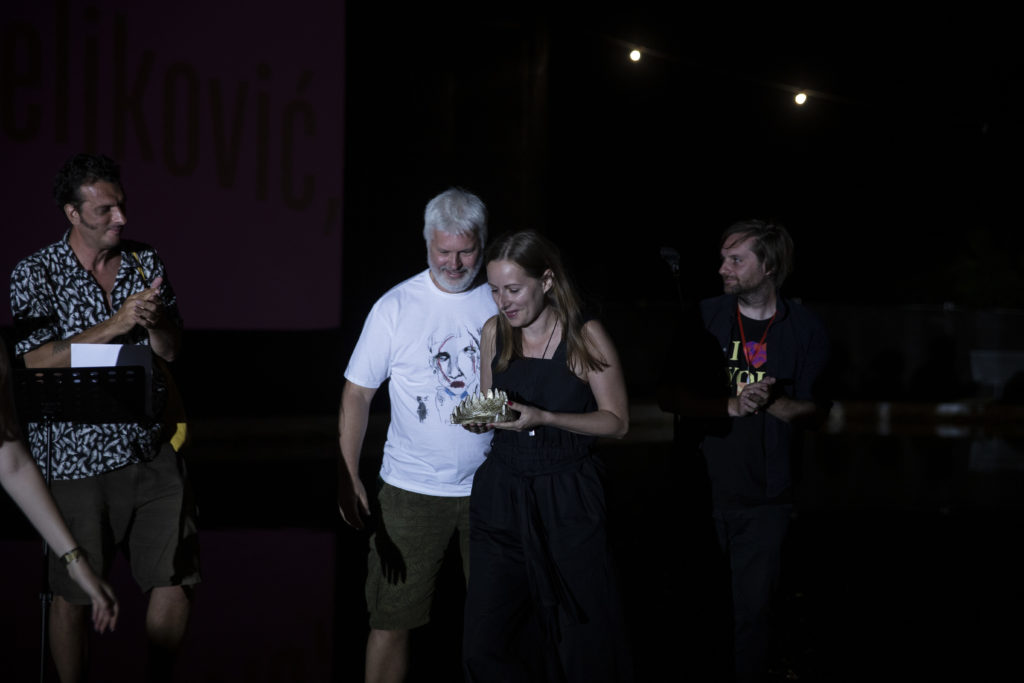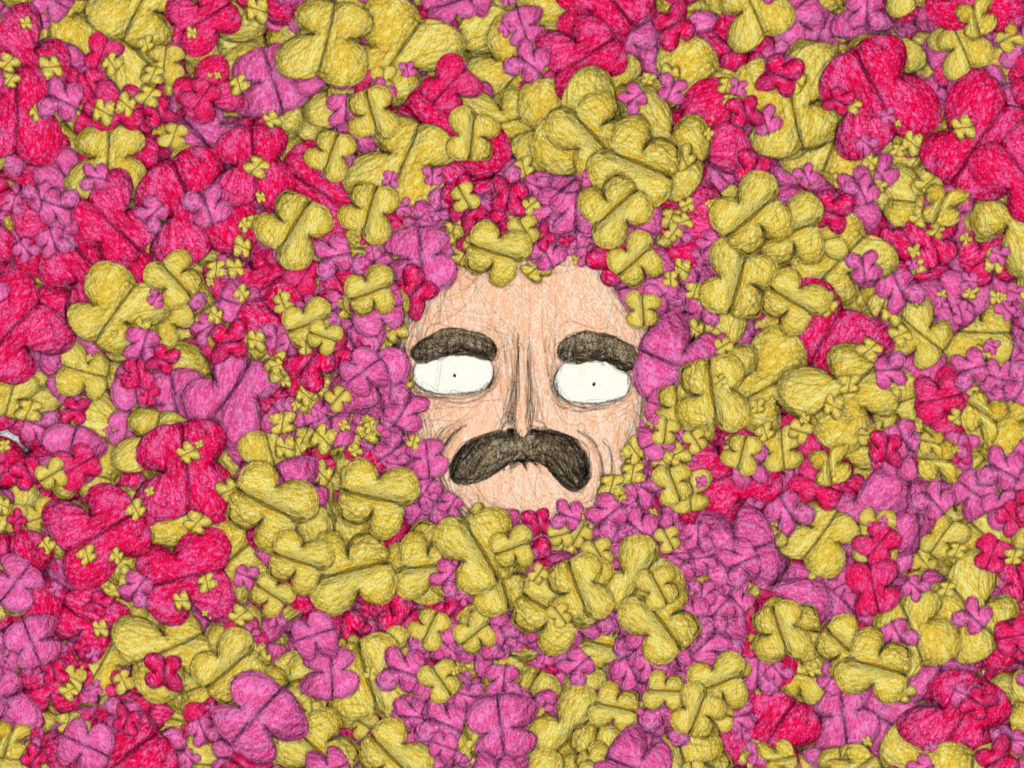Hopes and fears represent the movies of the third international competition at Anibar

Valton Marku
Various films by different producers who want to mirror different social phenomena, together with the fears and hopes these occurrences entail, will be shown during the third international competition.
Deep Love, SSPT (PTSD), Selfies, Matches and Toomas Beneath the Valley of the Wild Wolves, are five movies that will compete during the third edition of the international competitions at Anibar. By exposing their world views about status, phenomena, illnesses and other various situations, the producers dance with our hopes and fears, a dance that is required for the restoration of our hopes.
Deep Love – Mykyta Lyskov
A love from fairytales finally happens in Ukraine. One of Lenin’s statues appears in the beginning of the movie. His head exploding represents the history of humanity after the Second World War. Ukraine needs peace. Chaos all around. Nature is mourning. Bureaucracy and the apparatus of violence used by the state reminds us of the rule that chaos is more fainted when it is bigger. Plastic bags have taken the shape of living beings. They disrupt the characters’ vision. It is better not to see the catastrophe. “Für Elise” by Beethoven plays in the background and follows this state of sorrow. There is a huge need for security. Fear is all around. In this movie, love is a fundamental absence. Love needs to be reconsidered. There’s still hope for that.
SSPT (PTSD) – Claudia Cortés Espejo
Billy is a struggling eight-year-old boy. His story is shown through three tales. He is surely in trouble. In the first tale, three ducks are slandering while talking against slandering at the same time. This, in fact is one of many pointless videos Billy spends his all day watching. However, this pointlessness is not the same as the pointless duties that are imposed by his father. Violence arises from a bigger violence, just as the maintenance of fear; from a bigger fear. Billy is the rule of this occurrence, never excluded. In the second tale, the idea of winners in our times is questioned. “Am I the leading role or the extra?” This is shown through Mike, who follows the concept of the winner through no human norms. Finally, Billy decides to heal his weirdly ill mother. Despite the perverse initiative, Billy heals her, at the same time he gains hundreds and thousands of clicks on his channel. For modern illnesses, there is hope. Actually, there is fear. Billy is in the middle of this.
Selfies – Claudius Gentinetta
What would our world look like, if for example, we couldn’t have documented the dullness of our everyday lives in a raw manner? How would our lives look like selfies? The technologic development has risen hopes that together with it, cultures, people and differences will get closer. Can we help the poor without selfies? Can we go to the washroom and fulfill our physiological needs without having the need to browse selfies on our smartphones? These questions and reflections are brought to attention by the producer Claudius Gentinetta, where more than the hopes, he outlines the fears of this phenomenon.
Matches – Géza M. Tóth
L.S is a seven-year-old with a highly developed imagination. When he was even younger he dreamed of being older. Just as any premeditation of adults, he dreamed of the adult life; the personal bed, the personal house, the personal clothes, even the personal car, but from the ones that appear on action movies. However, the seven-year-old L.S can imagine and understand that life is full of challenges, even if the rules are respected by adults. He knows, and his imagination understands fear, just as the need to overcome it, because our full self is at the other side of fear. Illustrations of colorful matches mirror the interview with the seven-year-old L.S. His world gives hope.
Toomas Beneath the Valley of the Wild Wolves – Chintis Lundgren
Toomas is a usual character just as us mortals. Dedicated to work, he faces an almost hamlet-like dilemma: to have or not to have sex with his boss? He refuses so consequently he loses his job. In order to support his family, he stands in front of another dilemma: how far can a man go to feed his children? In a paradoxical way, unemployed Toomas chooses an interesting job, a gigolo, but without telling his wife who his pregnant to his third child. In this stressful situation, Toomas’ wife asks for help after noticing her husband’s changing behaviors. The women’s empowering church offers help as a deconstructive institution for men. In the end, just as every secret that does not remain unexposed, both of their everyday lives come to light. The fears that losing a job brings and the hopes of finding another job are the main themes of this film. Also, the journey from loss to winning; from fear to hope is also undeniable. In fact, there hides hope in a subtle way.





